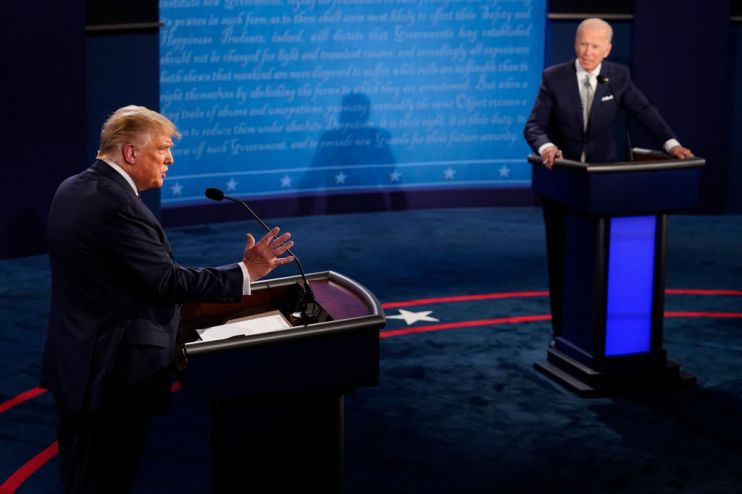JP Morgan strategists: Markets desperate for more stimulus at US election

The markets want a decisive outcome from the 3 November US presidential election that will lead to big near-term fiscal stimulus, which the country’s economy “really needs”, strategists at JP Morgan Asset Management have said.
Karen Ward, the London-based firm’s chief market strategist for Europe, said investors were now seeing the election in a “completely different light to the way there were”.
“Six months ago, we sort of knew both candidates had some… market unfriendly aspects,” she said on a call with reporters.
But she said coronavirus meant “the likelihood of those less market friendly policies has really receded”.
Ward said there is now a widespread understanding that “the US needs more stimulus, and it really needs it now.”
“Therefore what we need is a quick, clear-cut, decisive victory.” She said that would “preferably” be one that includes full control of Congress.
The US economy – the world’s biggest – contracted at a record rate in the second quarter of the year. Unemployment soared.
Although it started to recover in the summer, the rebound appears to have lost steam.
Democrat ‘sweep’ could boost growth
Yet US lawmakers remain deadlocked on a possible next round of stimulus. Republicans in the Senate are opposed to Democrat plans for around $2 trillion (£1.5 trillion) of spending. They argue it is too much.
Ward’s colleague Hugh Gimber, global market strategist at JP Morgan Asset Management, said a “Democrat sweep” would lead to higher spending and higher growth.
He highlighted the Dems’ $2 trillion stimulus plan which could be pushed through if the party also takes Congress.
Gimber said this growth would help put “upward pressure” on US bond yields. Low interest rates and yields have pushed investors towards rapidly growing stocks such as big tech names.
Rising yields and higher growth expectations could well push investors towards more “unloved” stocks such as financials, he said.
Gimber said he thought the “direction of travel for regulation on the technology sector is less different between a Democrat or a Republican administration than many investors currently think”.
Either way there would be a “tougher regulatory environment,” he said.